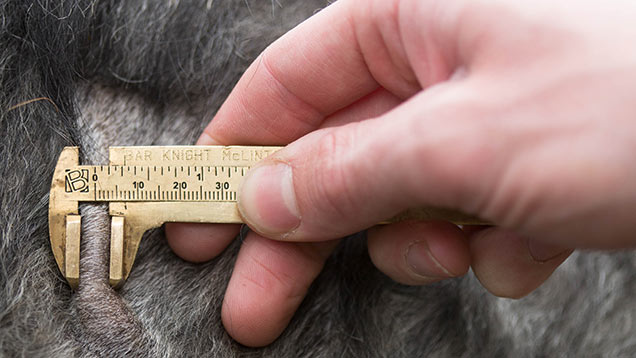Government agency to shake up delivery of TB testing
 © Tim Scrivener
© Tim Scrivener Dairy and cattle farmers in England and Wales are being urged to prepare for significant changes in the delivery of TB testing next year.
From April 2015, the newly formed Animal and Plant Health Agency (APHA) will manage TB testing through delivery partners who have successfully tendered for the work.
These delivery partners will be responsible for testing in one or more geographical regions of England and Wales.
Tendering processes are under way to decide on partners, which will be announced in early 2015. There will be a minimum of four and a maximum of seven delivery partners across England and Wales.
Under the changes, cattle keepers will remain responsible for arranging testing, but to do so they will need to liaise with the delivery partner for their region.
Delivery partners will then be responsible for allocating the test work, which will continue to be undertaken by fully qualified vets to ensure standards are maintained.
Partners will only be contractually required to offer testing work to selected veterinary businesses operating within their geographical region. The changes do not apply in Scotland.
Livestock keepers will be able to express a preference for a particular sub-contracted veterinary business to undertake their testing, and this preference will be honoured “where possible”, the APHA said.
However, livestock keepers who would prefer testing to be carried out by other vets not approved by the APHA will be required to pay for testing privately.
On-farm TB testing is currently performed by vets working for private businesses – usually chosen by the farmer – who are trained, appointed and paid by the APHA to do the work. More than 650 veterinary businesses perform this role and more than 2,000 individual vets are approved testers.
The work is not governed by a legally-binding contract, but is subject to a “memorandum of agreement” between the then ministry of agriculture and the British Veterinary Association (BVA), which is now more than 20 years old.
Simon Hall, the APHA’s veterinary director, said the main driver behind the changes was to put in place contractual arrangements to ensure a better quality of service.
“We already carry out some targeted auditing of the vets doing the testing. In most cases, they are doing a good job, but some don’t,” he added.
“In some cases, these are relatively minor things that would not really affect the outcome of the test. But in other cases, when they have not followed the correct procedure, it is possible they could miss disease, which is clearly not good for TB eradication.”
Mr Hall said TB testing costs the taxpayer in England and Wales about £26m each year, but that cost had never been tested in the marketplace. “It is important the APHA is able to demonstrate it is achieving the best possible value for money for the taxpayer”.
Farmers will receive a notification letter from the APHA that TB testing is due, which will include the arrangements for finding an approved vet. However, a fully qualified vet will always perform TB testing and livestock keepers will largely continue to choose who undertakes testing on their farm.
Read also: Welsh TB cattle movement rules explained
